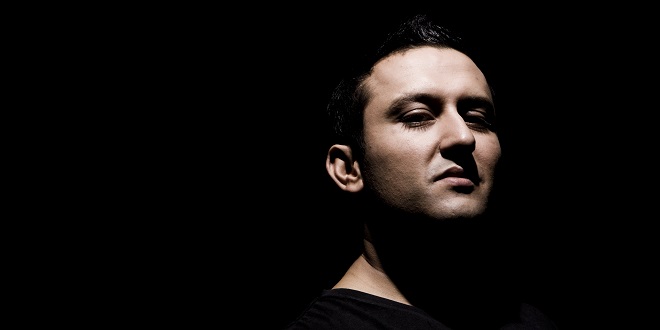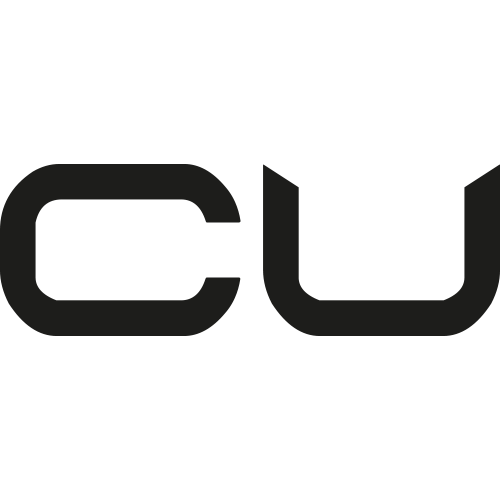Alex Flatner tells Blue Amazon why he doesn’t use loops and can sometimes spend a whole day EQing a kick drum.

First of all, whilst trying to avoid asking the obvious question “How did it start”, can you please give our readers a bit of an insight to your background, where your music inspiration came from and any defining moments that helped you on your musical path?
Actually, it all started in about ‘86/‘87 when my sister started to buy records. Back in those days you could either choose from cassette tapes or vinyl. So we were out almost every week in a record store together in Munich called “WOM” (World Of Music) which had all the latest music. I started buying Hip Hop, Soul, RnB, Disco. In ‘89 I bought my first techno record from KMS, but my musical roots in general came from my family. My uncle plays guitar professionally and is a singer. He gave me a lot of inspiration.
You currently reside in “Mannheim” which is situated outside Frankfurt. Is there much of a music scene in “Mannheim”, are they any other well-known artists from “Mannheim” that our readers may know of?
I moved to Mannheim in 2006 from Munich, which is my hometown. I must admit Mannheim is having a big influence in Germany within the electronic music sound. Here you can find Time Warp, Daredo Music – with loads of labels and probably one of the biggest digital distributors for electronic music. Also, you have the “Popakademie” which is one of the best academies where you can learn about the music business. Next to the Popakademie is the Musikpark where loads of agencies, studios and artists find their home to explore themselves. My studio is also a part of the Musikpark. Artists such as Ray Okpara, Nick Curly, Move D, Gorge, Lopazz, Christian Burkhardt and few more, are from this region, so I would say it’s the combination between “Heidelberg” and “Mannheim” which makes these two cities so exciting within the music scene.
“Mannheim” is also it’s quite an industrial city almost Detroit-esque, is there any similarities music-wise? Was there a big buzz around the place whilst hosting the “Time Warp” festival?
Yes, I agree, Mannheim is quite an industrial city, but you will find very calm people living here and the city also has loads of nice places. The river Rhein and Neckar are joined together as one. You wouldn’t believe how many nice beaches you can find here! Music wise, I think Mannheim has definitely got its own sound, which I don’t think you can compare to the Detroit sound though, in my opinion. When Time Warp is happening, that week it’s all about this music festival. It’s really huge and probably one of the biggest in Germany at the moment in regards to electronic music.
In the 90’s you were quite associated to the Berlin club scene whilst recording music for MFS Records. Can you tell us more about the scene back then and your involvement with it?
Back in the day it was all about the music. Comparing this to today, you find marketing companies, which are promoting you more as a person than the music itself. It’s all about Facebook and what kind of laces you have worn today or not! I think, also, it is good that the technology is so far advanced that we don’t need all the synthesizers and lots of people can afford to make music.
On the other hand, some stores have seen this as a chance make a big profit and take advantage of producers who would probably never get a record deal. There are lots of tracks for sale that are just recorded but not finished, so today we have a flood of masses of releases and it’s just not possible that some of us can listen to almost 4000 releases in a week that a digital store is releasing. Can you?
When the vinyl was strong enough, sales wise, there were just a few of the physical distribution companies and it was easier to find the stuff you were looking for. Berlin and MFS Records had a good stable of music and artist back then. The club scene has always been good there and continues to grow.
After the 90’s your name was propelled further in the UK after your huge remix of Corvin Dalek’s “Ponds N Penz”. Some people said this remix sparked off a new style of funky but fun European techno. Various people attempted to brand it / name it as a new genre, what were your feelings on this and intensions when recording it?
I remember when I was recording the track in my bedroom, as I lived at my parents’ house back then. I recorded the track with no preconceived ideas – it was just straight from the top of my head. And from what came off the top of my head was surprising, but what happened next was even more surprising! Personally, I never felt that my work needed a new genre name. For me, it was just techno. After I recorded that track at that moment I was just super happy about it and that it was released.
Over the last 4 or 5 years we have seen a change in club music. The tempo has lowered quite considerably and a deeper sounding influence is transparent. The popularity of this has been quite surprising in the UK but more surprising in Germany who seem to be market leaders in this area. With acts like M.A.N.D.Y, Motorcity Soul and your good self when do you think the change from being more techno orientated Germany to deeper house Germany started?
I think that all started to change in 2006, when people in the clubs were getting more interested in listening to housey, deeper and disco stuff. Before that, the demand was definitely for more techno, and by techno (at that time) I mean the harder and faster stuff. Acts like M.A.N.D.Y and Get Physical Records have had a big influence in changing people’s perceptions
You own your own record label “Circle Music”. The label releases music from yourself, Lopazz, remixes from Steve Lawler, George Morel and more. Can you tell us more about the inspiration for the label – is there a meaning behind the name “circle music”? And can you tell us about any of your favourite releases / moments since label started?
Circle Music takes meaning from the fact that a circle never stops and is always driving forward and in a process of continuous development. Circle Music also means to work with the artists as a team, we are all part of the Circle family and living our own dream. The artists I’m working with definitely have their own playground – they can use Circle Music to express themselves.
It was always very important for me to have this kind of motivation to share with others I worked with. Artists and friends I have worked with so far include Gui Boratto (his first release on a European label), Joey Beltram, Ken Ishii, Umek, Valentino Kanzyani, Reboot, Lopazz, Paul Mac, Daniel Bortz, Steve Lawler, George Morel and Patrick Podage.
Right now, we have just released a new Mark Deutsche & Musoe track called “High Deal”, including an excellent Federico Locchi and Daniel Herrlicher Remix. If you get a chance, please check it out:
Also after this summer I will be releasing the 2nd volume in my “Mixtape” compilation series on Circle Music. It will contain exclusive tracks from very selective artists. Please keep your eyes peeled for this one – I think it’s sure to prick up your ears 😉
Let’s talk studio, you have your own studio in Mannheim that is very analogue orientated with a digital output. How do you record music now compared to the 90’s? Any tips or tricks you can give perspective producers / artists? Why have you been nicknamed Alex “Kick Drum” Flatner?
I started to produce my own beats in ‘94 with a Yamaha Drum Machine and a 303 clone as a sequencer. I also used an Atari Falcon. Then in about 1999, when the hard disc revolution and software plug-ins started, I began to use this new technology. Like a lot of other producers though, I didn’t need my analogue equipment any more, so I sold a lot of the stuff, but found that after few years there is something missing in the sound.
Working on a purely digital basis is not the same working flow I had with my analogue equipment, so I started to re-buy all the analogue equipment again!
To answer the question how I work – today I work in a similar way as I did in the 90’s. I record all my sounds myself, I don’t really use any loops at all. All melodies or basslines I record live in the sequencer/hard disc – so, pretty much back to the roots! Also, I’m notating my work on notes. If you are not in the mood on a particular day to go to the studio, you can just take your notes and read what you have done. It’s pretty practical and makes things (for me) much more easy to see where I am and what I need to do in a track.
They call me Alex ”Kick Drum” Flatner, as I am probably one of the only guys on this entire planet who can spend so much time on a single kick drum track to just have it EQ’ed right. Hours upon hours, maybe the whole day!
You have been a very active DJ over the past year or more. Can you tell us some of the places / events you have played, any funny moments and a bit about your DJ style?
I’ve played in Russia, England, U.S.A., China, Australia, Italy, Spain, France, Holland, Norway, Japan, Spain, Switzerland, and of course in Germany, too. Style-wise, I have a really big sound spectrum. If I feel that people are more into disco and I have the chance to catch them with disco I will. But, if I feel they are more into house or techno, then I will do that. In my opinion I am the man who should entertain the people, to have for the few hours they spend in a club fun and a good time with me.
Personally, outside of music you have a passion and love for fast cars. Can you tell us more about this?
As a kid one of my dreams was to one day have a sports car, so I worked very hard to make my dream come true. But I will not tell you which one I drive 😉
You are also a collector of Adidas trainers, how many pairs do you own? What’s is your favourite style?
Haha!! Yes, I am addicted to this! The funny thing is, once I get them I don’t always wear them. I think I have about 50 pairs at the moment, but mostly only the limited sneakers.
Finally, Alex thanks for your time and is there anything else you would like to tell us about?
At the moment I am working on some new exciting new tracks with my studio partner Lopazz and have started, as well, a new collaboration with my old pal, Blue Amazon. Also Supernova did a superb remix of the track “When The Sun Goes Down” (which I did with Hermanez) and this will be released in July on Noir.
Next up…
Alex Flatner & LOPAZZ featuring Nick Maurer – Purpose (Remixes) (Circle 043_6R) featuring superb reworks from George Morel, Chris Venola, Ioakim Sayz, is released 25th June 2014. Format: 12”
Vinyl & Digital via Deejay.de/Decks.de
Further information: http://www.circlemusic.net / http://www.facebook.com/circlemusicgermany http://soundcloud.com/circle-music-germany / http://www.beatport.com/label/circle-music/2884




